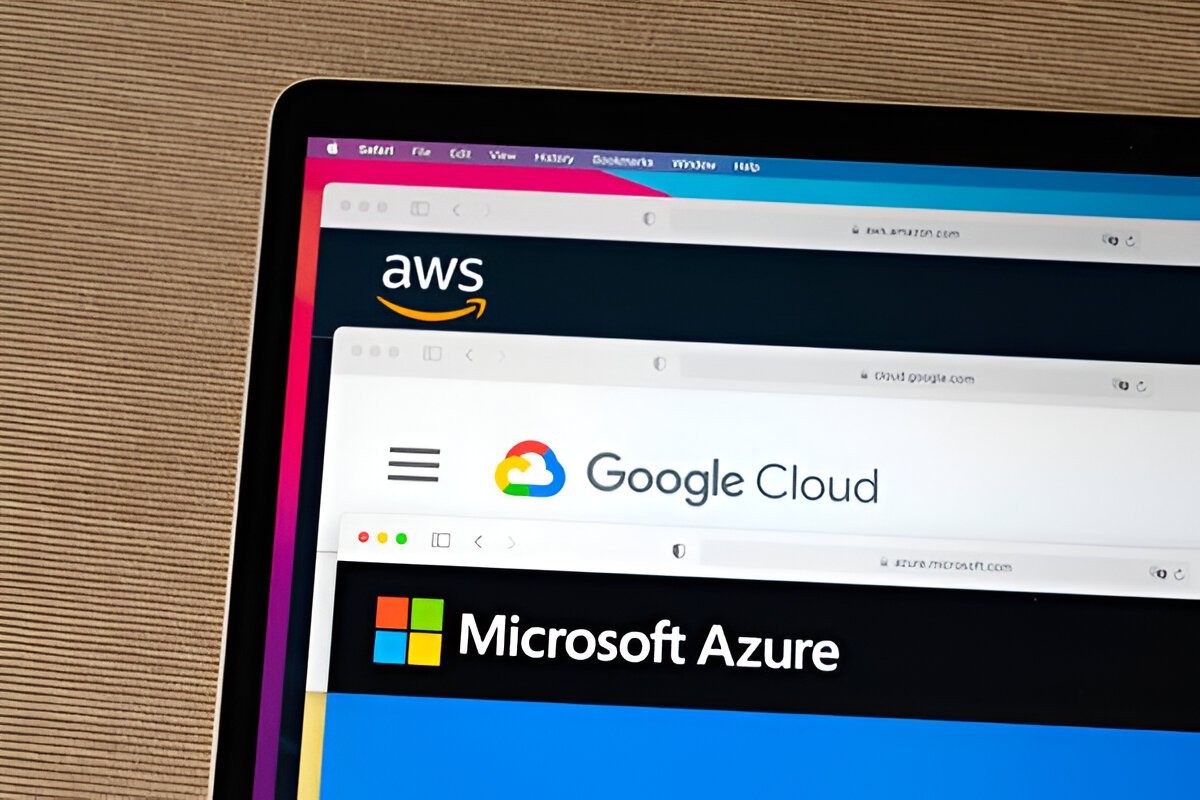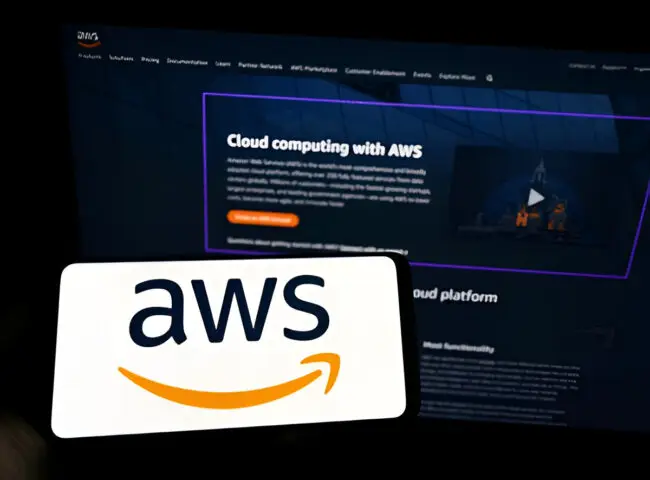The best cloud service among Amazon Web Services (AWS), Google Cloud, and Microsoft Azure depends on specific needs and use cases. Each platform offers unique features and strengths tailored to different requirements.
In today’s cloud computing market, AWS, Google Cloud, and Microsoft Azure dominate as the leading service providers. AWS, the first to market, offers the most extensive range of services and a global network of data centers. Its mature offerings and widespread adoption make it a go-to for many businesses.
Microsoft Azure presents seamless integration with Microsoft’s software, making it ideal for organizations reliant on Microsoft tools. Google Cloud, recognized for its data analytics and machine learning capabilities, is a strong choice for those prioritizing AI and big data. Your decision should align with your technical requirements, existing infrastructure, budget constraints, and strategic goals. Understanding your project’s demands is crucial in selecting the service that will best empower your cloud-based operations.
Cloud Titans At War
The digital age has sparked a clash of tech giants. Amazon Web Services (AWS), Google Cloud, and Microsoft Azure dominate this epic battle. Each strives to offer the most innovative, reliable, and scalable cloud solutions. Companies worldwide watch closely to see who will claim the crown in the ever-evolving cloud landscape.
The Rise Of Cloud Computing
In the past decade, cloud computing transformed tech. Businesses of all sizes no longer rely on in-house servers. The cloud offers power, flexibility, and cost-efficiency. AWS, Google Cloud, and Azure emerged as the powerhouses, each with unique services and features. Let us take a closer look at their offerings.
- AWS: A pioneer with a vast array of services
- Google Cloud: Excellence in data analytics and AI
- Azure: Seamless integration with Microsoft products
The Battle For The Cloud Throne
Each titan brings its strengths to the table.
| Amazon Web Services | Google Cloud | Microsoft Azure |
|---|---|---|
| Leading market share | Cutting-edge AI tools | Robust enterprise compatibility |
| Broad service offerings | Big data solutions | Hybrid cloud environments |
| Extensive global infrastructure | Sustainable data centers | Deep integration with legacy systems |
Each provider invests heavily in innovation to stay ahead. This war of the clouds benefits consumers with better services and products. The competition is fierce, ensuring the cloud landscape will keep evolving for years to come.
Demystifying Aws, Gcp, And Azure
Demystifying AWS, GCP, and Azure can feel like navigating a labyrinth, with each turn promising innovative solutions yet demanding a choice. These three cloud giants offer expansive ecosystems fraught with technical jargon, complex pricing models, and an overwhelming array of services. Understanding their key distinctions can empower businesses to make informed decisions tailored to their specific needs.
Key Players In Cloud Services
The battlefield of cloud services is dominated by three titans: Amazon AWS, Google GCP, and Microsoft Azure. Each of these platforms brings unique strengths to the table, making them go-to choices for various applications and industries.
- AWS: Boasts robustness, vast service offerings, and a mature platform.
- GCP: Excels in data analytics, AI, and machine learning capabilities.
- Azure: Integrates seamlessly with Microsoft products and emphasizes enterprise needs.
Service Spectrum Comparison
To understand how AWS, GCP, and Azure stack up, consider examining their service spectrum. This involves delving into their offerings across various categories.
| Service Category | AWS | GCP | Azure |
|---|---|---|---|
| Compute | EC2, Lambda | Compute Engine, Cloud Functions | VMs, Azure Functions |
| Storage | S3, EBS | Cloud Storage, Persistent Disk | Blob Storage, Disk Storage |
| Databases | RDS, DynamoDB | Cloud SQL, Bigtable | SQL Database, Cosmos DB |
| AI and Machine Learning | SageMaker, Rekognition | AI Platform, Video AI | Azure Machine Learning, Cognitive Services |
| Networking | VPC, CloudFront | VPC, Content Delivery Network | Virtual Network, Azure CDN |
Each platform tailors its services to various user needs, be it through scalability, security, or integration capabilities. The best choice depends on the specific requirements and existing infrastructure of your business.
Market Share And Growth Dynamics
Choosing between Amazon Web Services (AWS), Google Cloud Platform (GCP), and Microsoft Azure depends on understanding their market positions and growth dynamics. Each offers unique services and benefits, influencing their market share and industry presence.
Current Market Positions
AWS, Azure, and Google Cloud dominate the cloud industry. AWS holds the largest market share, followed by Azure, with Google Cloud as a growing contender. Their market positions stem from customer base, global presence, and versatility of services.
| Service Provider | Market Share (2022) | Revenue Growth |
|---|---|---|
| AWS | 32% | 29% |
| Azure | 21% | 35% |
| Google Cloud | 8% | 45% |
Analysis Of Growth Trends
AWS has led for years. Azure shows a rapid catch-up, and Google Cloud registers the highest growth rate. Innovations, strategic partnerships, and expanded service portfolios contribute to these trends.
- AWS: Sturdy infrastructure, extensive offerings.
- Azure: Integration with other Microsoft services.
- Google Cloud: Analytical and machine learning services.
These dynamics shape the future of cloud services, reflecting the evolving needs of businesses and the relentless pace of technological advancement.
Performance Benchmarks
Choosing the best cloud service is vital for your business. Service performance is a key factor. In this section, we will look at Amazon Web Service, Google Cloud, and Microsoft Azure. We will compare their performance benchmarks.
Speed And Reliability Measures
Speed and reliability are crucial in cloud performance. Users expect instant access and minimal downtime. We will delve into how each service performs under peak loads. We will see how often they stay up without any problems.
Amazon Web Service (AWS)
- Global reach: Provides low-latency access worldwide
- Consistency: Delivers steady performance even during spikes
Google Cloud Platform (GCP)
- Network infrastructure: Uses Google’s private network for fast data transfer
- Live migration of VMs: Prevents downtime during maintenance
Microsoft Azure
- Speed: Offers fast I/O performance for demanding apps
- Availability sets: Keeps apps running during faults and updates
Upscaling And Resource Management
Effective resource management is essential as demand grows. Let’s examine how these cloud services manage resources and scale.
Amazon Web Service (AWS)
- Auto Scaling: Adjusts resources based on real-time demand
- Elastic Load Balancing: Distributes traffic for stability
Google Cloud Platform (GCP)
- Custom Machine Types: Tailors resources to specific needs
- Commitment-based discounts: Lowers costs for long-term scaling
Microsoft Azure
- Virtual Machine Scale Sets: Automates and scales the number of VM instances
- Azure Autoscale: Simple, resource-based performance scaling
Cost Comparison
Choosing the right cloud service is like picking a meal from a world-class buffet—it should fit your taste and your wallet. In the realm of cloud computing, Amazon Web Services (AWS), Google Cloud Platform (GCP), and Microsoft Azure are the celebrated chefs. Let’s slice into the cost aspects to help you decide which cloud kitchen is worth your investment.
Pricing Models Explored
Understanding how cloud giants charge you is the first step to managing your budget.
- AWS: It offers a pay-as-you-go model, allowing users to pay for what they use without upfront costs.
- Google Cloud: It also provides a pay-as-you-go model but stands out with its sustained use discounts.
- Azure: Known for its enterprise-friendly pricing, it brings reserved instance discounts for long-term commitments.
Total Cost Of Ownership Assessment
Calculating the full cost over time keeps your budget in the clear.
| Service | Upfront Costs | Operational Costs | Scaling Costs | Long-term Savings |
|---|---|---|---|---|
| AWS | None | Variable | Based on Demand | Volume Discounts |
| Google Cloud | None | Variable | Based on Use | Sustained Use Discounts |
| Azure | Optional | Variable | Based on Commitment | Reserved Instance Discounts |
Each cloud provider aptly meets different needs and budgets. A thorough cost-benefit analysis will spotlight the optimal choice for you.
Security Features Faceoff
Choosing between Amazon Web Services, Google Cloud, and Microsoft Azure is tough. All offer top-notch security. Yet, details make a difference. Dig into the security showdown to pick your best fit. Let’s compare their security features.
Compliance And Certifications
Trust seals the deal in cloud security. Each cloud service boasts a collection of compliance badges. They prove they’re safe for various industries. Here’s a quick look.
| Service | Compliance |
|---|---|
| AWS | ISO, GDPR, SOC, HIPAA, and more |
| Google Cloud | ISO, GDPR, SOC, HIPAA, and FedRAMP |
| Azure | ISO, GDPR, SOC, HIPAA, FedRAMP, and more |
Data Protection Mechanisms
Encryption, access control, and regular audits secure data. All three services commit to robust data protection. Check out what each cloud giant offers.
- AWS: Key Management Service, Hardware Security Modules
- Google Cloud: Layer 4 data encryption, Identity-Aware Proxy
- Azure: Azure Security Center, Advanced Threat Protection
Innovations And Unique Offerings
When exploring the world of cloud services, innovations and unique offerings set providers apart. Amazon Web Services (AWS), Google Cloud Platform (GCP), and Microsoft Azure lead the charge in cloud computing. They bring forth groundbreaking services to meet a wide spectrum of needs. Understanding their unique offerings helps in choosing the right cloud service for specific requirements.
Cutting-edge Services
Each cloud provider continually innovates to offer the most advanced solutions. AWS shines with a massive suite of services in machine learning, analytics, and Internet of Things (IoT). Google Cloud excels in data analytics, artificial intelligence (AI), and open-source technologies. Azure is known for integrating with Microsoft’s software and enterprise-focused services.
- AWS offers SageMaker for seamless machine learning models deployment.
- Google Cloud’s BigQuery provides a highly scalable and fast data warehouse.
- Azure leverages the power of AI with Azure Cognitive Services.
Exclusive Features By Platform
Digging deeper into exclusive features, each platform has its standout elements. AWS has a broad and deep set of tools unmatched in the industry. Google Cloud is the king of Kubernetes, an open-source container orchestration system. Azure integrates deeply with other Microsoft services, offering a familiar environment for many enterprises.
| Service | AWS | Google Cloud | Microsoft Azure |
|---|---|---|---|
| Global Infrastructure | Largest footprint with 24 regions | Data centers efficiently use renewable energy | More than 54000 miles of fiber and subsea cable |
| Developer Tools | AWS CodeBuild & CodeDeploy for developers | Cloud Build & Container Registry for a seamless DevOps flow | Visual Studio integration for a streamlined development experience |
| Unique Offerings | AWS Outposts for on-premises clouds | Anthos for hybrid and multi-cloud management | Azure Sphere for secure IoT solutions |
For businesses, each platform’s unique features present distinct advantages. AWS is ideal for varied and expansive cloud services. Google Cloud leads with analytics and AI innovations. Azure suits those invested in Microsoft’s ecosystem.
User Experience And Support
The journey to pick the best cloud service provider often leads to evaluating the holistic experiences they offer. User experience and support stand at the forefront of this evaluation. Everyone values straightforward navigation and responsive support when managing cloud services. Three titans, Amazon Web Services (AWS), Google Cloud, and Microsoft Azure, constantly evolve to offer their users the best in class experience. Let’s dive into the specifics of ease of use and the support ecosystems offered by these providers.
Ease Of Use Analysis
Interface and Setup:
- AWS: Offers a detailed console with extensive services, which can be overwhelming for beginners.
- Google Cloud: Features a cleaner interface focused on user-friendliness, easier for new users.
- Azure: Integrates closely with other Microsoft products, benefiting users familiar with the Microsoft ecosystem.
Documentation and Learning Materials:
- All three have extensive documentation and tutorials to help users.
- Google Cloud and Azure provide more structured learning paths through their respective online academies.
Community And Customer Support
Community Forums:
- AWS: Has a large community with forums and user groups globally.
- Google Cloud: Offers a passionate developer community ready to share knowledge.
- Azure: Leverages its strong MSDN and Stack Overflow presence.
Support Plans: All providers offer a range of support plans tailored to the needs of different businesses.
| Provider | Basic Support | Premium Support |
|---|---|---|
| AWS | 24/7 via forums | Direct access to technical support engineers |
| Google Cloud | 24/7 support for billing | Phone and email support for technical issues |
| Azure | Free billing and subscription support | Full range of technical support |
Response Time: Premium support plans from all three provide faster response times, a crucial factor during outages.
Integration And Compatibility
Choosing the right cloud service is crucial for seamless business operations. Integration and compatibility play vital roles in how effectively a business can connect its existing infrastructure with the cloud. Amazon Web Services (AWS), Google Cloud Platform (GCP), and Microsoft Azure all offer robust environments for integration. Yet, their approaches differ significantly.
Interoperability With Other Systems
Interoperability is key for a smooth cloud experience. It ensures that different systems work together without issues. Each cloud service offers unique features:
- AWS provides a mature set of integration options due to its longevity in the market.
- Google Cloud stands out with its data analytics and machine learning capabilities.
- Azure shines with its ability to easily integrate with other Microsoft products.
Third-party Tool Support
Support for third-party tools extends a cloud platform’s capabilities. Here’s an overview:
| Service | Tool Support |
|---|---|
| AWS | Extensive marketplace with various third-party tools |
| Google Cloud | Integration with popular open-source tools and APIs |
| Azure | Strong focus on enterprise-level service integrations |
All three platforms provide excellent third-party tool support. Choosing the right service depends on your specific needs and existing systems. Consider the tools and systems your business currently uses and match that with the cloud platform offering the most seamless integration.
Ecosystem And Partnerships
In the titanic clash of cloud services, Amazon Web Services (AWS), Google Cloud Platform (GCP), and Microsoft Azure lock horns not just in features, but also through the strength of their ecosystems and partnerships. These alliances with various tech giants and the continuous growth of their ecosystems play a pivotal role in how they support, innovate, and offer solutions to businesses worldwide.
Strategic Alliances
Strategic alliances are key in extending cloud capabilities. AWS boasts a long-standing partnership with VMware, allowing seamless integration with on-premises data centers. Google Cloud, not far behind, strategically teams up with open-source providers like Red Hat and GitLab. Azure, via its parent company Microsoft, harnesses strong bonds with enterprise software leaders like SAP, enhancing its appeal to large corporations.
Growing The Ecosystem
The vitality of a cloud service is often measured by the robustness of its ecosystem. AWS Marketplace lists thousands of third-party software listings, from security solutions to advanced analytics. Google Cloud appeals with its integrated AI and machine learning services, luring in a continually evolving community of data scientists and developers. Azure’s ecosystem, alongside its strong enterprise focus, boasts an expansive range of services and a burgeoning suite of AI tools, geared towards fostering innovation across various industries.
The Developer Perspective
Choosing between Amazon Web Services (AWS), Google Cloud, and Microsoft Azure depends heavily on what developers need. Each cloud service offers unique tools and communities. Let’s dive into the developer’s view of these platforms.
Tools And Libraries Available
Each cloud platform provides a diverse set of tools and libraries:
- AWS shines with an extensive kit. It includes the AWS SDK for popular languages. Developers use it for various services like Lambda and S3.
- Google Cloud offers powerful data and analytics tools. It’s a top pick for AI and machine learning with TensorFlow integration.
- Microsoft Azure stands out with excellent .NET support. It caters to a wide range of development scenarios.
All three platforms support common programming languages. They provide APIs and CLI tools for efficient development workflows.
Developer Community Insights
The size and activity of the developer community can influence the choice:
| Service | Community Size | Support Quality |
|---|---|---|
| AWS | Large | Extensive forums and documentation |
| Google Cloud | Medium | Growing with strong open-source engagement |
| Azure | Large | Strong in enterprise with active MSDN forums |
Communities share insights, answer questions, and create tutorials. This helps new developers learn quickly.
Enterprise Adoption Stories
When it comes to picking the best cloud service, stories of big enterprises and smaller companies can guide us. We will explore how various organizations have chosen between Amazon Web Services (AWS), Google Cloud Platform (GCP), and Microsoft Azure. Their stories can shine a light on which cloud service stands out in the real world.
Big-name Case Studies
Global giants across industries often share their cloud adoption experiences. Here’s a snapshot:
- Netflix – Embraced AWS for its unmatched scalability to support streaming.
- Twitter – Choose Google Cloud to manage data and machine learning workloads.
- BMW – Leveraged Microsoft Azure for its digital transformation in the automotive tech.
Some Cloud Journeys
Small to medium enterprises (SMEs) also find value in cloud services:
| Company | Industry | Cloud Service | Reason for Choice |
|---|---|---|---|
| Dropbox | Cloud Storage | AWS | Superior file hosting capabilities |
| Spotify | Music Streaming | Google Cloud | Data analytics and machine learning |
| Asos | Retail | Azure | Infrastructure as a Service (IaaS) |
Global Reach And Localized Services
When searching for a cloud service provider, global reach and localized services come to the forefront. Amazon Web Services (AWS), Google Cloud Platform (GCP), and Microsoft Azure all offer extensive networks worldwide. Yet, their approach to data handling and regional support can differ. This section explores how these providers cater to global and local needs.
Data Center Locations
AWS, GCP, and Azure maintain a vast array of data centers across the globe. Each aims to deliver low latency and high availability to its users.
| Provider | Number of Regions | Number of Availability Zones |
|---|---|---|
| AWS | 24+ | 77+ |
| Google Cloud | 24+ | N/A |
| Azure | 60+ | 160+ |
Google Cloud does not use the term Availability Zones in the same way as AWS and Azure.
Regional Customizations
Adaptation to local regulations and needs is crucial for businesses. AWS, Azure, and GCP provide tailored services for specific regions.
- AWS adheres to local policies with data residency options.
- Azure offers specialized cloud services for government agencies.
- Google Cloud tailors its approach through regional partners and support.
Different regions may experience distinct levels of service due to these customizations.
Sustainability And Green Computing
Sustainability and Green Computing are the watchwords of our time. Tech giants like Amazon Web Services (AWS), Google Cloud, and Microsoft Azure have taken center stage in the cloud platform battle. Their impact on our planet is pivotal. Which of these giants is paving the way towards a greener future? Let’s delve into their environmental efforts starting with the impact they’ve made.
Environmental Impact
Each cloud service provider has a unique approach to minimizing its carbon footprint. AWS employs a long-term sustainability strategy focused on efficiency. They streamline their data centers for optimal performance with less energy. Google Cloud integrates environmental considerations into its operations. Their data centers are among the most efficient. Azure commits to greener practices too. Each company’s direct and indirect environmental impacts are essential to evaluate.
Renewable Energy Initiatives
Renewable energy is at the forefront of eco-friendly solutions. AWS is heading towards 100% renewable energy usage. They invest in wind and solar projects globally. Google Cloud achieved a remarkable feat, matching 100% of its energy use with renewable energy since 2017. They continue to uphold this commitment. Azure follows suit, with extensive investments in green energy, aimed at reducing fossil fuel dependence.
- AWS: Wind and solar farms expansion, 100% renewable energy goal.
- Google Cloud: 100% renewable energy matching, sustainable energy deals.
- Azure: Investment in renewable projects, fossil-fuel reduction.
Hybrid And Multi-cloud Strategies
Today, businesses seek flexibility in their cloud solutions. Hybrid and Multi-Cloud Strategies offer this flexibility. They let companies combine services. They reduce reliance on one provider.
Combining Strengths
Different cloud services have unique features. Amazon Web Services (AWS) leads with a vast array of tools. Google Cloud excels in data analytics. Microsoft Azure integrates with Microsoft products.
- AWS offers extensive services for various applications.
- Google Cloud shines in machine learning and big data.
- Azure is great for those using Windows Server, SQL Server, and .NET.
Businesses use different providers for their strengths. This can improve performance and innovation.
Avoiding Vendor Lock-in
Vendor lock-in is a risk when using one cloud provider. It can become costly and limiting. With multi-cloud, companies avoid this. They can move services between clouds. This keeps costs low and options open.
| Provider | Benefits |
|---|---|
| AWS | Wide range of tools, market leader |
| Google Cloud | Big data, machine learning |
| Azure | Windows integration, enterprise focus |
With a hybrid approach, leverage your private cloud and public cloud. This increases capability and security.
The Future Of Cloud Services
The cloud computing landscape is ever-changing. Major players like Amazon Web Services (AWS), Google Cloud, and Microsoft Azure constantly innovate, keeping technology enthusiasts on their toes regarding the future. This evolution in cloud services marks a new era where agility, scalability, and machine learning will redefine the possibilities for businesses and individuals.
Predicting The Next Big Thing
Predicting technological jumps in cloud computing can be as thrilling as it is challenging. Experts agree that AI, Quantum Computing, and Edge Computing will be pivotal. These technologies promise to accelerate data processing times, expand the power of analytics, and bring cloud services closer to end-users.
- AI Integration: Enhanced machine learning capabilities will make cloud services more intuitive.
- Quantum Computing: This could drastically reduce complex problem-solving times.
- Edge Computing: Processing will occur closer to data sources, improving speed and efficiency.
Cloud Industry Evolutions
The cloud industry will continue to evolve. It will bring forward new paradigms of collaboration and security. Observers believe advancements such as Serverless Architectures and More Robust Cybersecurity will be at the forefront:
| Evolution | Impact |
|---|---|
| Multi-cloud Strategies | Reduces dependency on a single provider |
| Environment-friendly Cloud | Less energy usage with greater efficiencies |
| Compliance and Governance | Stricter controls for data protection |
These advancements will shape the discussion around AWS, Google Cloud, and Azure. Businesses will focus on cloud solutions that offer the cutting-edge tech, sustainability, and top-notch security necessary for future growth. With each provider bringing something unique to the table, the choice for ‘the best cloud service’ might come down to specialized needs and preferences.
Industry Expert Opinions
Choosing between Amazon Web Services (AWS), Google Cloud Platform (GCP), and Microsoft Azure requires insight. We look at what industry experts say.
Analysts’ Views
Analysts play a key role in shaping perceptions of tech giants.
They crunch numbers, market trends, and user reviews. Here’s what they reveal:
- AWS leads in market share and breadth of services.
- Azure impresses with enterprise integration and support.
- GCP excels in data analytics and open-source technologies.
Various reports rank them based on growth, innovation, and customer satisfaction.
Thought Leaders’ Predictions
Visionaries and tech influencers share their foresight. Predictions point towards:
- Multi-cloud strategies becoming the norm.
- Enhanced focus on AI and machine learning capabilities.
- Strong competition leads to more customer-centric offerings.
Experts suggest users assess their specific needs to pick the right service.
Complementary Technologies
The cloud computing landscape is rich with options. Amazon Web Services (AWS), Google Cloud Platform (GCP), and Microsoft Azure offer vast ecosystems. But beyond core services, their complementary technologies set them apart. Let’s examine the strengths of AI, IoT, and edge computing.
AI and Machine Learning Capabilities
AWS, GCP, and Azure all shine in AI and machine learning.
- AWS boasts SageMaker, a tool to build, train, and deploy machine learning models quickly.
- GCP excels with TensorFlow, an open-source platform favored in the scientific community.
- Azure offers Azure Machine Learning, which simplifies algorithm creation and deployment.
All three platforms support custom and pre-built AI models. They cater to novices and experts alike.
IoT And Edge Computing Synergies
IoT and edge computing thrive on real-time data analysis near the source. Here’s how the big three support these technologies:
| Service | IoT Services | Edge Computing |
|---|---|---|
| AWS | AWS IoT Core | AWS Greengrass |
| GCP | Cloud IoT Core | Edge TPU |
| Azure | Azure IoT Hub | Azure IoT Edge |
They ensure seamless device connection and computing at the edge. These drive efficiencies in various industries.
Training And Certifications
Embarking on a cloud computing career necessitates a solid foundation in training and certifications. These qualifications not only boost your resume but also equip you with the right skills to tackle today’s dynamic cloud environment. Whether your allegiance lies with Amazon Web Services (AWS), Google Cloud, or Microsoft Azure, each platform offers comprehensive learning resources to help you become proficient in cloud technology.
Skill Development Programs
Each cloud service provider has a thoroughly designed set of skill development programs targeting various technical levels and roles. AWS, for instance, brings to the table AWS Training and Certification programs ranging from the foundational Cloud Practitioner to the more advanced Specialty certifications. Google Cloud similarly provides Quicklabs and certification paths, tailor-made for data engineers, cloud architects, and more. Microsoft Azure stands out with its robust learning platform, Microsoft Learn, which allows for hands-on experience through interactive learning paths.
Career Pathways In the Cloud
Breaking into the cloud workforce or advancing your career hinges on identifying the right certification path. AWS carves out career paths for architecture, operations, and development, urging learners to achieve Associate, Professional, and Specialty level certifications. Google Cloud’s approach centralizes on roles, offering guided learning paths for career roles like Cloud Engineer, Data Analyst, or Application Developer. Azure maps out structured learning paths from the Fundamentals level to the Expert certifications, guiding professionals towards roles including Azure Administrator, Developer, or Solutions Architect.
| AWS | Google Cloud | Azure |
| Cloud Practitioner
Solutions Architect DevOps Engineer |
Associate Cloud Engineer
Professional Data Engineer Professional Cloud Architect |
AI Fundamentals
Azure Administrator Azure Solutions Architect |
Choosing the right cloud service for professional development is a strategic decision. AWS offers the richest array of certifications, Google Cloud focuses on fine-tuning role-specific skills, and Azure emphasizes integration with Microsoft technologies and learning paths. Explore each platform’s offerings and align them with your career aspirations to make an informed choice.
Final Verdict
Reaching a final verdict on the best cloud service is no small feat. Each platform—Amazon Web Services (AWS), Google Cloud (GCP), and Microsoft Azure—boasts unique strengths and offers diverse features. Let’s distill our insights to see which cloud reigns supreme for different needs.
The Best Cloud For Specific Scenarios
Determining the top cloud provider often hinges on business needs and goals. Here’s a quick roundup:
- AWS: Ideal for a vast range of services and a mature ecosystem.
- Google Cloud: Perfect for data analytics and machine learning innovations.
- Microsoft Azure: A go-to for seamless integration with Microsoft products.
Concluding Thoughts
Each cloud service provider shines in its own right:
| Service | Key Strengths |
|---|---|
| AWS | Comprehensive solutions, robust infrastructure |
| Google Cloud | Advanced AI tools, high-end data analytics |
| Microsoft Azure | Strong enterprise focus, deep Windows integration |
Selecting a cloud provider should align with your project demands. Now armed with knowledge, you can make an enlightened choice.
Frequently Asked Questions
Is Google Cloud Or Azure Better?
Choosing between Google Cloud and Azure depends on specific project requirements and budget. Both offer robust, scalable cloud services; Azure integrates seamlessly with Microsoft products, while Google Cloud excels in data analytics and machine learning.
What Are The Top 3 Cloud Providers?
The top 3 cloud providers are Amazon Web Services (AWS), Microsoft Azure, and Google Cloud Platform (GCP). These platforms offer extensive cloud services, including computing power, storage options, and networking capabilities.
Which Cloud Platform Is Best?
The best cloud platform varies based on specific needs. Amazon Web Services leads in market share, Google Cloud excels in analytics, and Microsoft Azure offers strong enterprise compatibility. Evaluate features, pricing, and scalability to choose the right option for your requirements.
Which Cloud Service Is Most Popular?
The popularity varies, but Amazon Web Services (AWS) often leads in market share, indicating widespread use and trust in the industry.
How Does Azure Compare With Aws?
Azure boasts seamless integration with Microsoft tools, while AWS offers a broader range of services and mature offerings.
Can Google Cloud Surpass Amazon And Azure?
Google Cloud has strong data analytics and machine learning offerings but still trails behind AWS and Azure in overall market presence.
What Are The Pricing Differences?
Each cloud provider has different pricing models; AWS uses a pay-as-you-go model, Azure offers enterprise agreements, and Google Cloud provides sustained use discounts.
Conclusion
Choosing the best cloud service depends on your specific needs and goals. Whether it’s Amazon Web Services, Google Cloud, or Microsoft Azure, each has strengths that cater to different business models and technical requirements. Assess features, pricing, scalability, and support before making your decision.
Ultimately, the right choice will align with your company’s long-term vision, ensuring a robust and scalable digital infrastructure.








Leave feedback about this